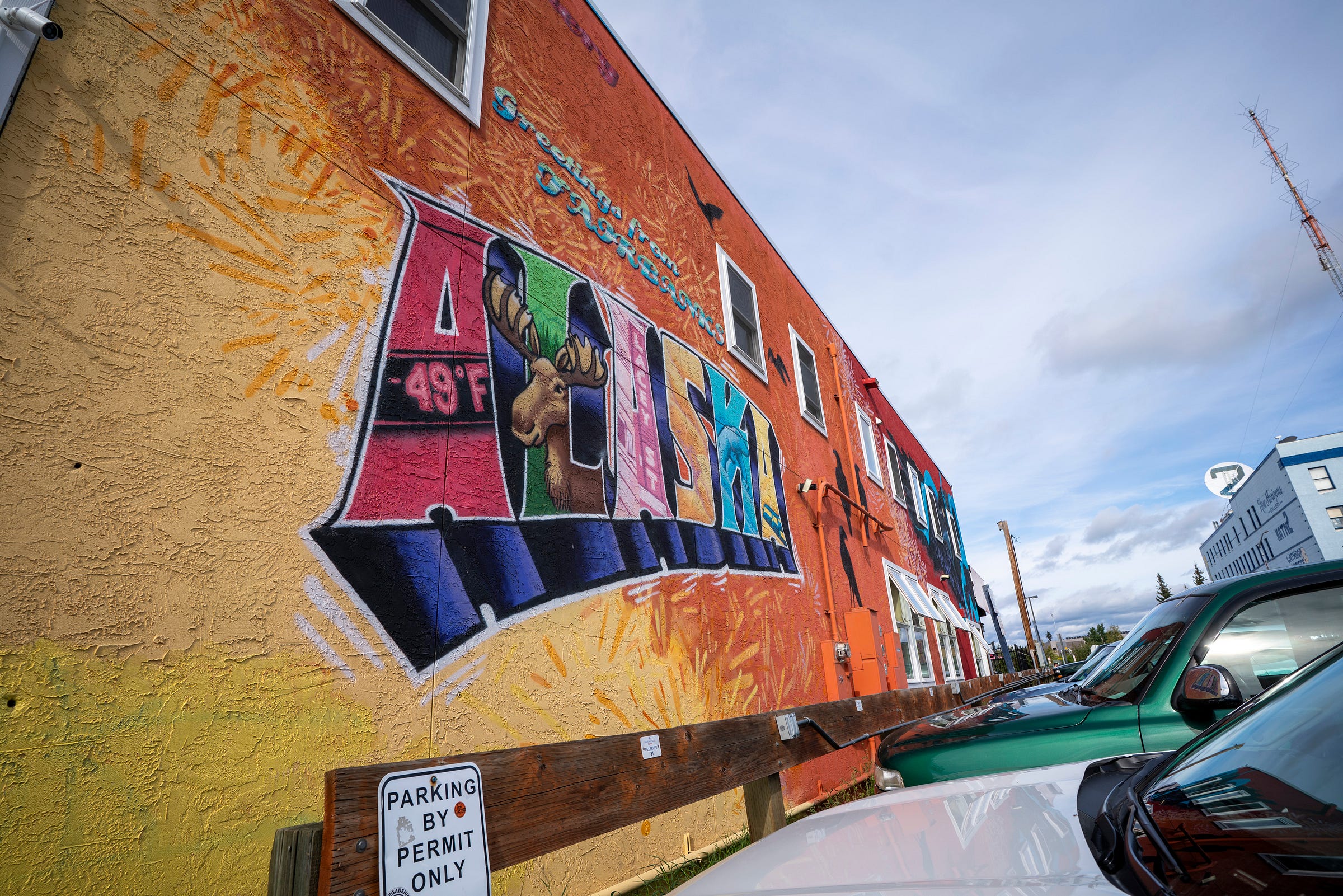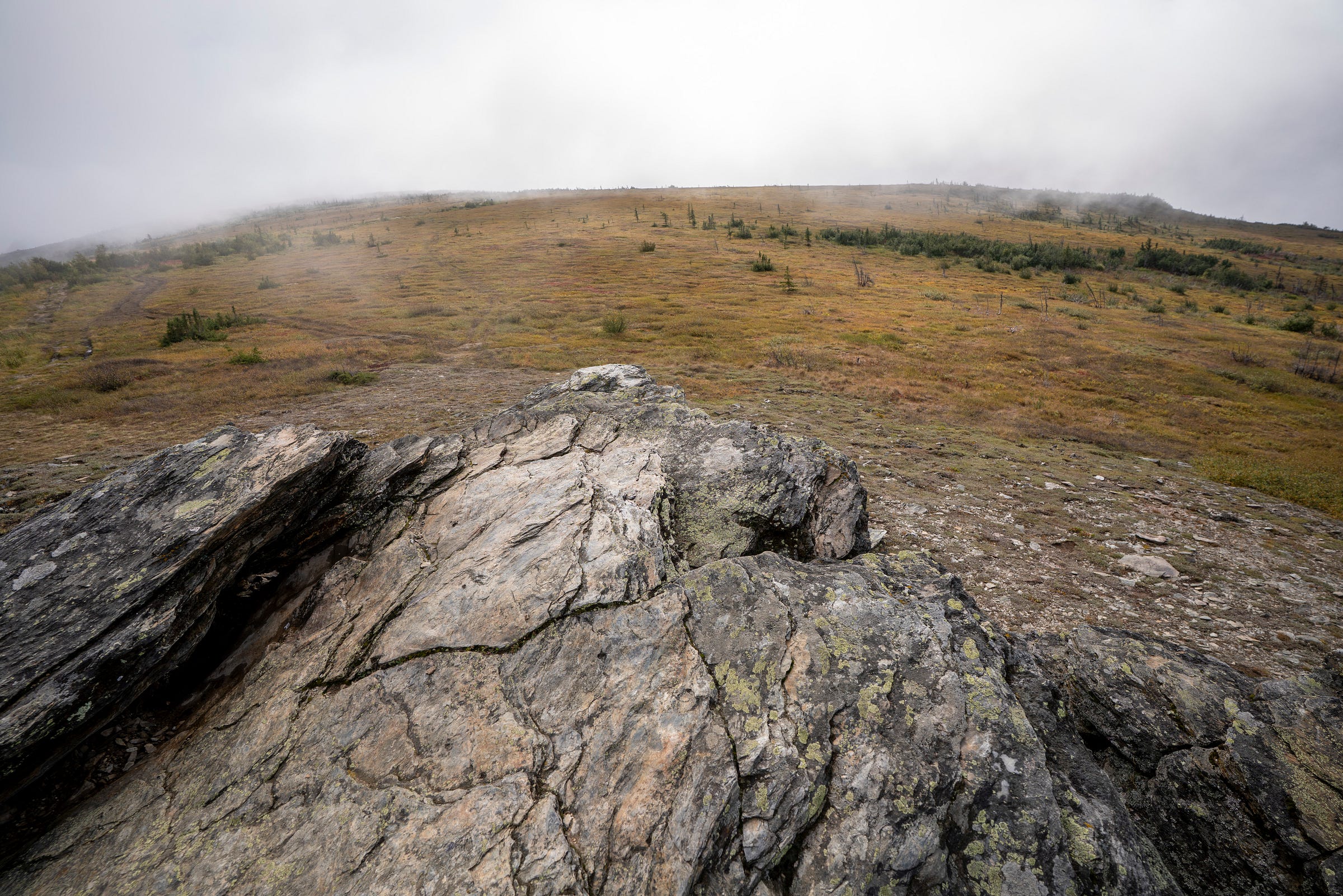Filmstack Inspiration Challenge - Day 26
An inspirational lesson from my high school English teacher
Attention Filmstackers!
For anyone living in the Los Angeles area, Filmstack In-Person Meetup #3 is happening this Sunday 9/14 at 4PM. To attend, visit the Luma page HERE. Now onto the main event!
Inspiration is a really fascinating subject to explore, and I’m really glad I get to add my two cents to the conversation started by
and organized by .Thank you both for keeping the fire lit.
I’m writing this from my brother & sister-in-law’s vacation spot in Fairbanks, Alaska to ensure I don’t deliver my entry late. Because I do not want to be the person to break the chain.
Good news is: There are few places on earth more inspiring than a wooded cabin a half-day’s drive from the Arctic Circle. No aurora sightings yet, but I’ve still got another night. 🤞
On Originality
I think a lot about originality and avoiding being derivative, which – when everything’s been done – is a tall order.
This started in earnest in high school, when I received a piece of inspiration from my AP English teacher (Mr. Ketch, if you’re out there reading this, reach out!) that sticks with me to this day:
Clichés permeate everything we do without us even noticing them. You can – and should – avoid them.
In my college admittance essay, which I shared with him, he pointed out several instances where I could elevate the essay with more originality. Basically, he told me: lose the clichés.
Once he pointed these clichés out, they were achingly obvious, but when I was writing them, I didn’t think of them as clichés. I just thought of them as “English.”
I can’t remember the specifics but I do recall the essay was about the time I went curling (yes, this thing: 🥌) and me and my friends competed against a group of 10 year old kids and got our asses handed to us.
I used phrases like “we stood facing each other like two opposing armies on the field of battle,” or something. It’s a bit fuzzy. It was over 20 years ago and we didn’t have Google Drive back then.
I assumed the originality came from the context in which I used the clichés, but, as Mr. Ketch informed me (and this is me inferring a bit from his advice), writing is about finding a new way to say something new and I could do better than borrowing expressions from others.
I had been encouraged as a writer in the past, by my parents, my aunt, my friends and other family.
But this was the first time that someone pushed me beyond my habitual comfort zone to do better. To be better.
And every time I sit down to write something, I think about it. I consider whether there may be a more unique way to tell a story or convey a concept. I try (and don’t always succeed) to find what’s new about what I’m saying and how I’m writing it.
There’s an enormous amount of value in saying something that people want to hear but haven’t heard yet. My best performing Substack posts all fit this way of thinking and it’s why I have such high standards for comedy writing and story structure.
This was further drilled into me when I worked in the writers’ room of Veep, where it paid to be one-of-a-kind. If anyone pitched a “first thought” joke - that is, the obvious joke that’s right in front of the writer - it was labeled as such and pushed aside for something more original.
Working in that environment, you learned to only pitch jokes / ideas if they were as different as possible from things people had already heard / seen. That intellectual rigor is 90% of the reason that Veep’s comedy was so fucking good.
But this way of thinking extends well beyond just my writing (and the notes I give to other writers).
I try to apply it to all aspects of my intellectual life:
On Substack, I try to write about the thing that others haven’t covered ad nauseam.
In conversation, I try to add something new and ask pertinent questions that lead to interesting places.
In my professional life, I format bios and resumes with personal touches that might help me stand apart from other applicants.
In everyday problem-solving, I try (and again, don’t always succeed) to think of the non-obvious solution. (This is particularly helpful when Solution 1 doesn’t pan out… Which, spoiler alert, it rarely does)
I’m sure there are other ways I’ve applied this philosophy in a (hopefully) unique way, but the caffeine from my morning coffee hasn’t flooded my dopamine centers yet.
While I await that rush, here are some practical tips for applying Mr. Ketch’s inspiration to your daily life.
Some Ways to be Original
Don’t Settle for Solution 1
That great one-liner / quippy retort may be fine for cocktail parties, but the first thing that pops into your head is rarely the best solution to whatever problem you’re facing, be it jokes or story structure or the best way to fix your kitchen cabinet.
The math behind this is pretty simple: The chance that your first idea is also your best idea out of list of 20 ideas (for the sake of argument) is approximately 5%. If you care about doing your best work, keep going. That means more pitches on an idea or joke, more drafts, more iterations, more attempts at finding the unexpected angle.
Don’t Trust “Rushes of Inspiration”
Similar to the above, the best writing usually comes as a result of multiple cycles of writing and rewriting. The rush of inspiration that fuels your first draft can be very exciting, but don’t let it fool you.
The best music, movies, and products in the world were built as a result of people questioning their first thought ideas. The best artists push and prod, they question their initial instincts and cut ruthlessly.
As an example, anyone who’s read the story of Pixar knows the finished movie rarely resembles the first draft. Through the process of iteration – which, if you’re not familiar with my writing, I’m a big fan of – the thing is nearly always made better.
Realize That Ideas Aren’t Sh*t
You may have read
’s post on ideas. If so, you know why he (and I) think ideas are overrated.Ideas are sticky – not in a good way like those cool gloves that Tom Cruise wore in Mission Impossible 4 when he climbed the Burj Khalifa. In a bad way, like when you step on a piece of sun-cooked saltwater taffy on the Coney Island boardwalk.
They lodge in your head and they’re impossible to get rid of, even when they no longer serve their purpose. Some of the best ideas we have for a show / movie / short are the ones that are hardest to shed once they’ve outlived their usefulness.
We have a tendency to hold on to the initial excitement we felt when the idea first invaded our brain, and that fond recollection tends to cloud our editorial judgment when the time comes to let it go.
Intellectually, we know that killing our darlings is part of the filmmaking process, but emotionally, we’re not ready.
Get More Specific
I mentioned the power of specificity when writing comedy in my post How Not to be Unfunny. You can also leverage specificity to make your writing more original.
The first version of the section above read:
Ideas are sticky - not in a good way like those gloves that Tom Cruise wore in Mission Impossible 4. In a bad way, like when you step in gum.
It’s fine, but the Coney Island boardwalk analogy is better because it’s (probably) something you haven’t heard before, but also more evocative and – at least in my mind – stickier, in the literal sense.
Be Wary of Groupthink
The drawbacks to herd mentality are numerous. From public health to investing, groupthink and echo chambers negatively impact individuals (who chase trends that lead nowhere) and societies (See: right now, everywhere).
It’s also incredibly easy to fall prey to these pitfalls, especially when you’re amongst the trees of social media (such as you are right now).
But try to step back and see the forest whenever possible1.
Resist the urge to blindly agree with those who reflect your point of view back at you.
This is the only way to grow intellectually, and perhaps the hardest thing on this list to get right.
Critical thought (and self-critical thought) can be most challenging when social acceptance is on the line.
But that’s also when it’s the most important.
A Cold Splash of Inspiration
Inspiration doesn’t always arrive in a burst of warm, enveloping light. Often the best inspiration smacks you in the face and challenges you to be a better version of yourself.
For me, this is a lesson 20+ years in the making, and I expect it will inform my creative endeavors for at least 20 more.
Hopefully this post has inspired you to question your own ideas, especially when you think they’re brilliant.
I want to underscore that Mr. Ketch's piece of inspiration was about much more than just avoiding clichés. It was about pushing past the obvious and digging just a few steps deeper, even if it’s uncomfortable.
Only in doing so will you be able to discover something new.
Stay tuned,
Jon
PS: Didn’t get an aurora sighting, but the beauty of the Alaskan landscape was enough for me.
Yes, I acknowledge the irony of using the forest/trees metaphor in post about avoiding clichés, but I never said I was going to bat 1,000, yet another cliché I use to reflexively illustrate how hard they are to avoid!








I would say VEEP is the best series ever FWIW. It is the ONLY show I have seen every episode (that wasn't limited by design) and as someone infected with a completion urge that says something.
I find your practice quite inspiring Jon, thank you. Although I have to admit, I am also a fan of the working-it-all-out-in-public stumble through method too, and that is one of the attributes of a newsletter platform. I feel I don't need the best version. I will work towards the best version though. I approach a topic from multiple angles if I can. I make mistakes. And I like watching others do the same -- because I relate.
The work is my devotion to finding a solution. Or at least I find some fortitude in that belief.
Good reminder. Thanks, Jon